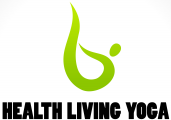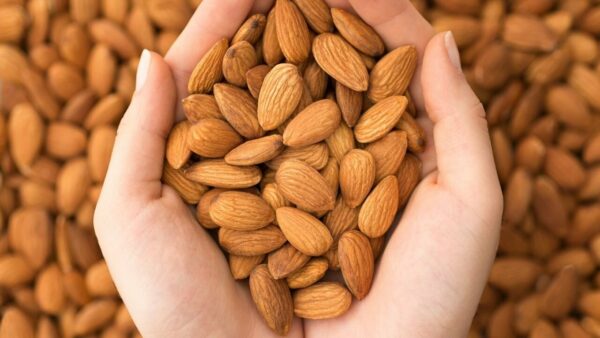Cardiologist Dr Arthur Agatston* differentiated the myths from facts for cholesterol. Cholesterol is essential for the running of the body. High cholesterol is generally believed to be the culprit for heart diseases. It, however, is not true because cholesterol is necessary for all the cells of the body and functions. Cholesterol carries out these activities throughout the day and night.
Role of cholesterol in health and disease
Calcium score or Agatston score is mostly used all over the medical centres of the world as the predictor of future heart attacks. It explains why cholesterol is vital for well being of the heart. Dr Agatston adds that cholesterol is found in all the systems of the human body. It makes and ranges right from heart, bones, cells, skin, liver, heart, intestine, brain, liver and nerves and also works with the hormones, including adrenal. One should know the CHOLESTEROL combines more than one substance to make up adrenal and sex hormones.
The cell membranes are essentially made up of cholesterol and maintained by it. Membranes’ fluidity of cells helps in resisting any changes in temperature plus protecting and insulating the fibres of nerves of the cells.
Cholesterol has essential multifunctions for producing the steroidal sex hormones for men and women. For women estrogen and progesterone and testosterone in men also the production of adrenal hormones cortisol and aldosterone. Perhaps it is right to understand that aldosterone is involved in retaining salt and water in body and cortisol has the function to regulate the sugar level in the blood and in immune and inflammatory responses. Additionally, cholesterol has an important function to produce the bile salts generated by the liver and stored in the gallbladder. Bile salts play the role to help in the digestion of fat-soluble vitamins A, D, E and K absorption of fat.
In the case of deficient cholesterol in malnourished, due to chronic disease or famine, Vitamin D can not get generated from the sun rays. In the case of a low level of cholesterol, it may affect the metabolism of serotonin a substance in the regulation of mood.-
Cholesterol with respect to diet.
Dr Agatston emphasises that Cholesterol is not made from the diet but made by the liver when at rest, mostly at night while sleeping or when resting. (like fasting)Research shows that cholesterol gets made when one is least active. He recommends taking a short-acting statin at night, such as late in the evening Pravachol( pravastatin) or Mevacor( lovastatin) for those who need medical treatment. Stronger or longer-acting statin such as Crestor or Lipitor keeps working throughout day and night. Statin drugs stop the work of the enzyme that manufactures or synthesize cholesterol in the liver.
Facts about Cholesterol in diet and blood level of Cholesterol.
Dr Agatston points out that saturated fat in the diet found in red meat and full-fat dairy products ( not necessarily the dietary cholesterol) affect the blood cholesterol levels the most particular the LDL. But in 33 per cent of cases dietary cholesterol results in increasing the blood cholesterol. Therefore it is of utmost importance to discuss the diet with one’s doctor. Egg yolk and shrimp do contain a good amount of dietary cholesterol but both have no unhealthy cholesterol unless cooked served with butter or bacon. So removing them from the diet is most unlikely to affect the blood cholesterol level.
Risk of stroke due to high cholesterol: ATHEROSCLEROSIS, Ischemic stroke
In plain language, high cholesterol contributes to ATHEROSCLEROSIS which is the build-up of plaque in the carotid artery on either side of the neck thus narrowing or reducing or blocking the diameter of the artery and may at times block the supply of oxygen to the brain and lead to Ischemic stroke.
Ischemic stroke may also be caused by the debris of clot travelling to the brain from the heart or from any of the torn off plaque build-up of in the vessels and travel to the brain and result in a brain stroke. There are various treatments available to reduce the danger of plaque rupture in the coronary arteries to minimise the damage to the brain.
How does high cholesterol enhance the chance of a heart at the endothelial barrier
Dr Agatston explains that higher a patient cholesterol, it tends to get on to the walls of the vessels. LDL cholesterol particles are major carrier of the cholesterol in the blood, burrow through the endothelial barrier of the inner artery lining, that is like a very thin layer of skin and deposit cholesterol in the plaques that form underneath the endothelium. The rupture of the plaque leads to blood clots and arterial spasm, this is likely to block the arteries leading to the heart, that causes a heart attack.
As a high level of cholesterol is normally protective, but may not be so always and therefore cardiac prevention should be decided from case to case. In practice, Dr Agatston says atherosclerosis may be caused by HDL in some cases and may not occur in the case of LDL at times. He adds further that cholesterol need not be a definite predictor of future heart attack as found practically when comparing North Americans and Chinese of South-East China.
Other Chronic Diseases Caused by High Cholesterol
High cholesterol is also linked to peripheral diseases(PAD) that affect blood vessels outside the heart and the brain. All most the same phenomenon of fatty deposits build up underneath the arteries lining leading to the legs, reducing the blood circulation leading to intermittent pain, numbness and weakness.
The myth about healthy cholesterol Goals.
Cholesterol that develops the atherosclerosis is different for different people. No exact goal levels can be given that apply to all. This misconception must be discarded.
Dr Agatston says that Heart attacks roughly take place equally for those having high cholesterol and also low Cholesterol. No definite guidelines can get noticed. As other factors such as high BP, diabetes, smoking and other unknown factors. No person should be assured of any safe level of cholesterol if there is a family history and other cardiac risk factors.
For good determination of heart attack, good tests should be carried out for the carotid arteries at the age about late teens or early the twenties. And then the calcium score should be measured for men that reach 45 and 55 for women. Higher the calcium score for your age the greater is the risk of heart attack or attack.
- Dr Arthur Agatston is a clinical professor of medicine at Florida International University, Miami. He has authored a lot of scientific articles and referred in media and very frequently quoted on diet and health.






